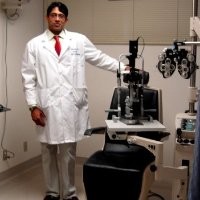As an eye care specialist and director of the Shankar Netrika Eye Centre in Mumbai, I would like to shed light on an important yet often overlooked eye condition – Uveitis. This article is aimed at offering simple, comprehendible information about this condition and recent developments in its diagnosis and treatment.
Uveitis is an inflammation of the eye’s middle layer, known as the uvea. Its diagnosis and treatment can pose a challenge to clinicians due to the diverse pathogens involved. However, a recent observational study in Italy has shown promising results in identifying the causative pathogens and determining the appropriate treatment through a procedure known as aqueous tap with real-time polymerase chain reaction (RT-PCR) testing.
This study, conducted in a tertiary referral center, involved 61 patients (65 eyes) with suspected infectious uveitis. The patients underwent diagnostic aqueous RT-PCR testing between November 2016 and July 2022. However, patients suspected of having syphilis or tuberculosis were not included. This study focused on identifying infections like herpes simplex 1 (HSV-1) and 2 (HSV-2) viruses, varicella zoster virus (VZV), cytomegalovirus (CMV), and Toxoplasma gondii.
The results were encouraging. Out of the 65 eyes tested, 38 were RT-PCR positive, with 20% testing positive for CMV and 15% for HSV-1. Interestingly, one patient tested positive for both HSV-1 and CMV. HSV-2 and T. gondii were detected in one eye each. In 38% of cases, RT-PCR confirmed the initial diagnosis, while in 20% of the cases, the test results led to a change in the initial diagnosis – mostly in favor of CMV infection. It was observed that negative RT-PCR results were more common in patients who had previously been treated with antiviral therapy.
The study did have its limitations, including a limited sample size and the fact that it was retrospective. The authors of the study also noted a possible referral bias, indicating that patients with a higher suspicion for infectious etiology were more likely to be referred to their center.
Despite these limitations, the study’s clinical significance is noteworthy. It demonstrated the usefulness of aqueous RT-PCR in confirming suspected cases of infectious uveitis and helping to adjust the treatment modality based on the results. This could potentially improve the diagnosis and treatment of uveitis, especially in challenging cases.
As an eye care expert, I believe that staying abreast of such developments can be beneficial not only for clinicians but also for patients, thereby enhancing the quality of eye care. If you have any questions or need further information, please visit my website https://shankarnetrika.com/ or call on 9920044620.


Comments are closed for this post.